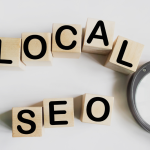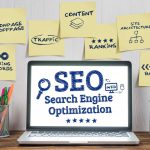Search engine optimization has evolved into a fundamental aspect of any digital marketing strategy, enabling businesses to stand out in an intensely competitive online environment. At LinkLumin, Toronto, we believe understanding both on page vs off page SEO is crucial for sustained success in search rankings. By combining effective content creation, high-quality inbound links, and meticulous optimization, businesses can drive organic traffic, boost user engagement, and enhance overall visibility in search engines. In this blog post, we explore why on-page and off-page SEO matter and how they intersect to shape powerful, future-proof strategies.
Understanding On Page SEO
Definition of On Page SEO
On-page SEO involves the strategic optimization of elements within a webpage to appeal to both search engines and human visitors. Unlike off-page tactics that focus on external signals such as inbound links, on-page efforts center on the page’s actual content, site structure, and user experience. By refining on-site factors, brands can align each page with relevant search intent and ensure that search engine algorithms read them as authoritative, high-quality resources. This method provides more control over how your site appears in searches, increasing the likelihood of improved search rankings.
Typically, on-page SEO requires a deep understanding of search queries and the best way to present information that matches user needs. This process demands careful attention to keywords, page layout, internal links, meta tags, schema markup, and the overall site architecture. The outcome can be a robust, user-friendly website that caters to search engines such as Google, Bing, and even regional search engines. Correctly executing on-page optimization also sets the stage for better domain-wide performance, helping your website withstand shifts in the SEO industry and changes in search engine market share.
Key Elements of On-Page Optimization
On-page optimization includes a wide range of crucial factors that contribute to search engine rankings. One fundamental aspect is content optimization, which involves delivering high-quality, relevant content that speaks directly to user intent. To achieve this, content providers often use keyword research tools to identify keyword phrases or a target keyword that will resonate with their audience. By placing these terms naturally and avoiding keyword stuffing, you help search Crawlers parse the page effectively.
Website structure is another essential dimension. Proper Internal Linking ensures that search engines follow your site’s logical flow, distributing authority and allowing visitors to navigate through your blogs, product pages, or resource articles seamlessly. Incorporating schema markup can also strengthen your presence in search features, giving your content the potential to appear in Knowledge panels, rich snippets, or other search enhancements. Moreover, paying attention to technical optimization helps maintain site speed, security (HTTPS), and mobile responsiveness, enhancing user experience and reinforcing your site’s reputation with search engines. When all these elements work together, your pages become more appealing to both humans and algorithms, elevating their performance in a search query.
Benefits of On-Page SEO
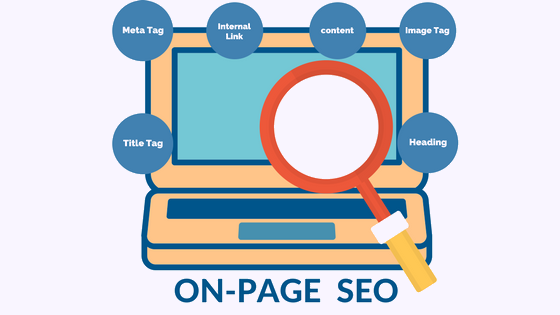
Improved Search Engine Rankings
By diligently optimizing page titles, headings, and content for SEO, brands create signals that search engines like Google interpret as quality. This synchronization with search engine algorithms typically leads to higher positions in organic searches, which translates to more clicks and better visibility. Utilizing Yoast, Yoast SEO Premium, or similar plugins can simplify these steps by offering real-time suggestions on how to perfect each page and ensure you’re adhering to best SEO techniques.
Enhanced User Experience
On-page SEO lays the groundwork for an excellent user experience, from easy site navigation to clarity of language. This emphasis reduces the bounce rate, as visitors can quickly locate the valuable content they seek. Clear structural cues—like well-organized subheadings and scannable paragraphs—also support natural language processing used by search engines. When a visitor’s experience remains positive, it signals to search engines that your site provides relevant, quality content, raising the odds of further traffic from future searches.
Increased Organic Traffic
Thanks to optimized copy, relevant internal and External Links, and alignment with targeted search term usage, your web pages stand a greater chance of ranking for multiple queries across languages and contexts. By delivering actual content that addresses specific user intent, businesses can draw in a continuous flow of organic traffic. Over time, the site fosters relationships with more potential customers, building stronger brand credibility and attracting additional visitors through word of mouth, social media, or strategic references from other blogs.
Higher Conversion Rates
By serving qualified traffic that arrives via relevant keywords, on-page SEO produces higher conversion rates. Visitors who discover your page after inputting a precise search term typically have genuine interest in your offerings. They are more inclined to subscribe to newsletters, complete purchases, or download resources, making on-page optimization a potent driver for business growth. Any effective SEO strategy recognizes that better user targeting leads to more meaningful interactions and higher returns on marketing efforts.
Understanding Off-Page SEO
Definition of Off-Page SEO
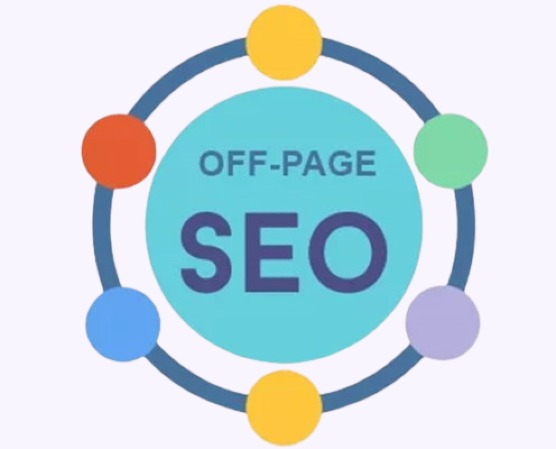
Whereas on-page SEO deals with elements you can control directly, off-page SEO emphasizes strategies to bolster your domain’s authority and reputation across the internet. Key tactics include acquiring inbound links or referrals from trusted resources, prompting social media traffic to your domain, and nurturing brand mentions across third-party platforms. Collectively, these signals help search engines gauge your site’s credibility within a competitive industry.
By demonstrating widespread trust—evidenced through endorsements from authoritative domains—your site gains status in the eyes of Google, Bing, and other popular search engines. This recognition can yield sustained improvements in search engine rankings, even amidst algorithm updates, because third-party validation remains a potent barometer of quality. Off-page SEO tactics also protect sites against potential volatility in search engines market share, ensuring your name appears consistently, no matter which platform users adopt.
Major Components of Off-Page Optimization
Off-page SEO extends beyond mere link source acquisition. Social engagement, brand awareness initiatives, and community involvement all reinforce domain authority. Participating in online forums, hosting webinars, or collaborating with influencers are ways of demonstrating expertise and encouraging others to reference your domain. The hallmark of an off-page approach is cultivating trust and forging relationships across your industry.
When you secure External Links via guest posts or curated content, it’s crucial those references come from high-caliber pages. Low-quality or spammy sources can tarnish your brand’s standing, especially if they trigger concerns about Link Blocking or manipulative tactics underlined by platforms like Google Webmaster Central Blog or Bing Community. Genuine engagement signals, such as recurring shares on social platforms or positive coverage in reputable publications, can amplify your site’s standing in the long run.
Benefits of Off-Page SEO
Improved Website Authority
A strong off-page profile signals to search engines that your site offers trusted insights and stands out in its field. Regular citations in credible blogs or well-known websites—including recognized Industry commentators and outlets like Search Engine Watch or Search Engine Land & SMX—accelerate this perception. When effectively managed, these mentions feed into a compounding effect, prompting improved SEO rankings over time.
Enhanced Brand Recognition
Off-page SEO fosters brand exposure beyond your own website. Consistent coverage and references in authoritative spaces—be they online knowledge forums or local directories—raise brand visibility in search engine marketing. Emerging in Knowledge panels or garnering positive dialogue across communities builds name recognition and encourages more inbound searches for your brand.
Better Referral Traffic
Whenever top-tier blogs or established communities link to you, you tap into new audiences searching for relevant insights. This influx of visitors comes from well-qualified spaces, as they often arrive with a specific problem or question aligned with your services. Off-page SEO thus becomes a form of targeted advertising, funnelling qualified traffic to your pages without paying for search ads.
Long-term SEO Sustainability
Cultivating strong relationships, consistent brand coverage, and endorsements from recognized leaders fosters sustainable growth. Even as search engine algorithms shift, authentic off-page signals endure. This resilience underscores how building robust off-page foundations buffers your domain against sudden ranking drops, ensuring you remain visible in search engine results across shifting market conditions.
Key Differences Between On Page vs Off Page SEO
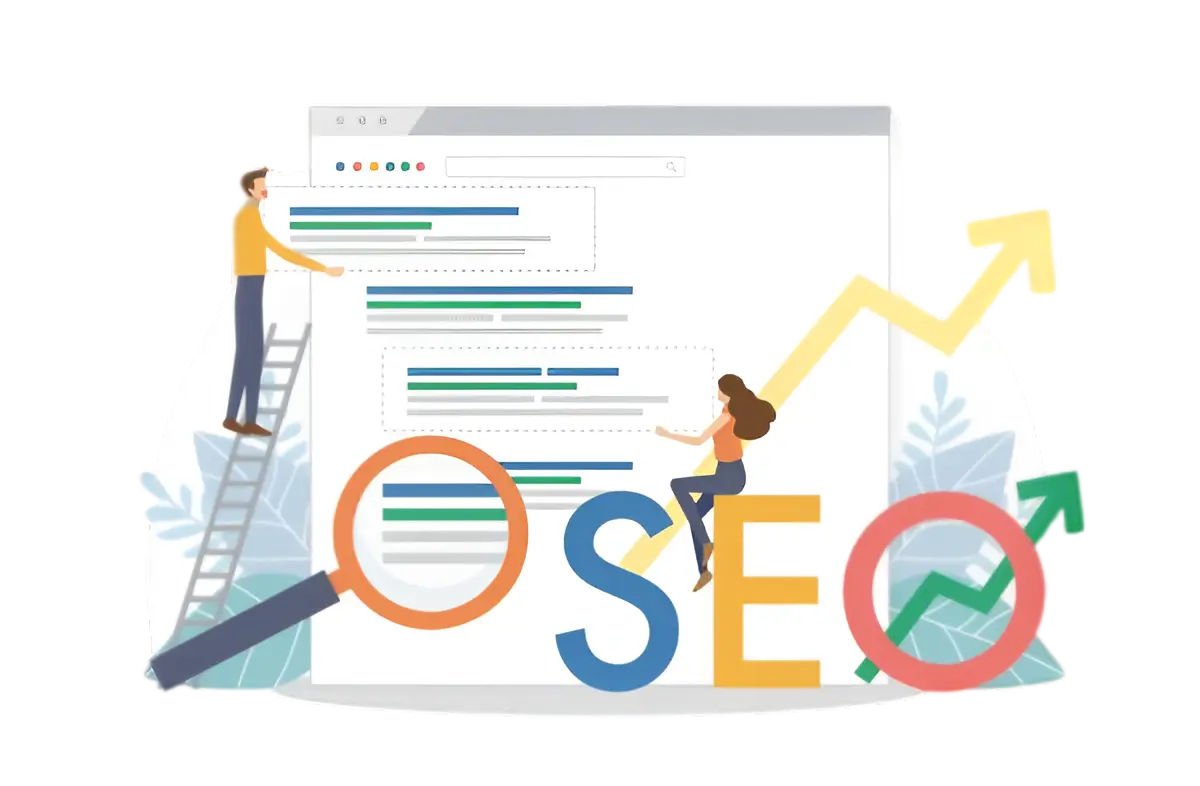
Focus Areas of Each Strategy
On-page SEO emphasizes refining site infrastructure, perfecting the actual content for target search intent, and delivering a frictionless user experience. It gives you granular control over your messaging, allowing for direct changes and immediate testing. Off-page SEO, conversely, covers factors that lie partially outside your direct control, such as acquiring inbound links or generating brand buzz on social media. While you can encourage these referrals through partnerships and consistent outreach, you rely on external entities—search engine companies, influencers, and consumers—to affirm your credibility.
Impact on Search Engine Rankings
Both on-page and off-page activities converge to shape your search engine rankings. On-page actions often produce more direct, short-term effects on your site’s positions, especially if you correct issues like duplicate content issues, poorly structured pages, or missing meta tags. Off-page elements, however, can deliver lasting momentum. Once you earn enough trust or brand recognition from external sources, it becomes easier to maintain your position in SERPs, even amidst competition. The synergy between these approaches forms a crucial piece of any robust SEO strategy.
Measurement and Metrics
On-page performance metrics include bounce rate, time on page, or how effectively your site uses internal links to guide visitors. Tools like Google Analytics or Search Console let you identify how well your content is resonating by analyzing average engagement, search query volume, and top landing pages. For off-page evaluation, domain ratings, link-building success rates, and referral traffic from external mentions become central. You might rely on specialized analytics platforms to measure how many links you’ve secured, whether they come from a reputable link source, or if you’ve experienced any broken links that hamper progress. With both sets of data, businesses can identify the next steps to refine their approach and maintain visibility in search engine results.
Why a Combined Approach Matters
Synergy Between On-Page and Off-Page Strategies
Melding on-page and off-page SEO fosters synergy that transcends the sum of each technique. High-quality, valuable content that’s meticulously optimized for relevant search queries naturally attracts External Links from outside observers. Simultaneously, consistent citations from respected influencers or partner organizations direct more attention to your site, amplifying your domain’s internal improvements. When both gears turn in tandem, your site’s reputation with search engines experiences a pronounced boost.
In a Generative Experience era powered by Artificial intelligence and advanced natural language processing, content that resonates deeply with visitors garners longer dwell times and broader social shares. The continuing adoption of new language versions and MULTILINGUAL SEARCH further increases the potential audience, making the synergy of on-page and off-page tactics indispensable. A balanced framework ensures your brand meets any shifts in user preferences or search engine market share dynamics, fostering resilience against the unpredictability of algorithm changes.
Comprehensive SEO Strategies for Businesses
Blending on-page refinement and off-page endorsement broadens your site’s capacity to rank and remain relevant in popular search engines. Establishing a user-centric environment—via carefully structured content marketing, well-implemented Yoast SEO or Yoast SEO Premium, and zero broken links—produces an excellent first impression. Off-page activities—like networking at industry events, forming cross-promotional relationships, or applying white-hat Skyscraper Technique link-building—add an influential external dimension.
Leading professionals in the SEO industry, including experts like Neil Patel, often highlight the importance of an integrated approach. A robust blueprint might target diverse marketing strategies, from influencer collaborations to localized campaigns that cater to regional user needs or address niche consumer segments. By following best practices from sources like the Google Blog, Technology & Marketing Law Blog, or guidelines from GuidelinesfromMicrosoft Bing, businesses can maintain an edge, achieving consistent results that transcend transient search trends.
Case Studies of Successful Integrated SEO
Major brands that have combined both strategies exemplify how synergy accelerates growth in search engine rankings. For instance, a retailer that invests in frequent, in-depth Blog Post creation while cultivating a network of authoritative link source sites might see a surge in organic traffic within months. Although the initial emphasis may have been on building a robust on-site foundation—optimizing product pages, refining internal links, and mitigating duplicate content issues—the reciprocal effect of off-site endorsements magnifies those efforts. By analyzing examples from the IUP Journal of Knowledge or domain-level metrics from real-world corporations, it’s clear that orchestrating both approaches yields improved brand reputation, stronger domain authority, and enduring traction in search results.
Conclusion
On-page SEO and off-page SEO both play vital roles in fueling growth and sustaining a competitive edge in today’s online environment. By integrating meticulous on-site optimization with robust external endorsements, businesses gain higher visibility, consistent organic traffic, and a deepened trust among users. At LinkLumin, Toronto, we help companies craft a unified SEO framework that maximizes conversions and supports long-term success. Contact LinkLumin today to discover how a combined on-page and off-page SEO approach can elevate your digital presence.
Tags

